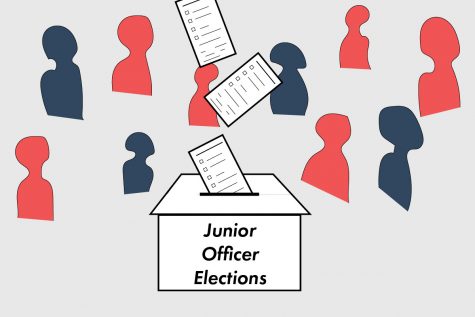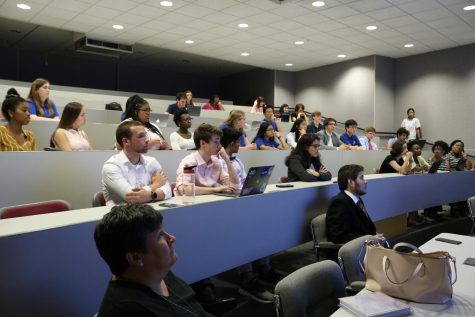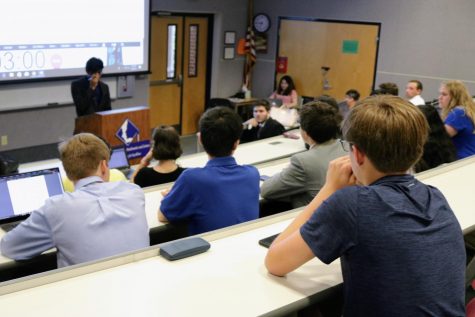MSMS Senate Passes Numerous Bills to Aid in School Policy
SGA Vice President, Jake Bozlee, begins Senate with “It’s 6 o’clock; we will begin taking attendance.”
October 26, 2015
So far, the 2015-2016 Senate has passed six bills, five of which have been approved by administration, an auspicious, efficiency-indicative beginning according to some. Every Tuesday at approximately 5:50pm, 28 well-dressed MSMS students meet in Hooper Auditorium to discuss, debate, and refine the Student Handbook. Elected by their peers as a school legislative body, these 14 seniors and 14 juniors are tasked with adjusting policies within the Student Handbook to better fit the needs of MSMS-community members.
“We are communicating in a much more efficient manner and getting things done in a timely manner because there are more comments relevant to the goal,” said Ella Stone, Student Government Association (SGA) secretary. Stone is responsible for maintaining the SGA bulletin board, sending out Senate updates, and taking notes at weekly Senate meetings.
While Stone can compare the current Senate to the 2014-2015 Senate which she observed several times during her campaign last year, junior and new senior senators are still adjusting to their new positions.
“At first it was daunting, but I was fortunate enough to have many friends already in Senate, both seniors and juniors,” said Rebecca Chen, junior Senator for Goen’s fifth floor.
“The hardest thing so far has been for the new senators, the juniors, to learn the lingo or vocab,” said Stone. With one nine-week term under their belts as MSMS senators, however, the new officials are “now they are coming off as well-versed and more confident,” according to Stone.
As senators were establishing a dynamic, they were also busy passing bills and resolutions that amend the handbook. Using their own ideas or the suggestions of their peers, the senators passed the six bills (See sidebar) which are waiting for administrative approval. Bills can be ratified by Senate and then fail to be approved for inclusion in the handbook.
“My favorite [bill] thus far has actually been about putting a system in for you change your study hour nights off,” said Stone. “I think it’s one that can be applicable to everybody. Initially, I thought it would be shot down immediately [in Senate], but in the way it was presented, the writer actually presented options so we can give administration ways to do it if we do it.”
Bills often stimulate debate in among senators, another aspect of Senate new senators had to adjust to. “The thing with senate is lots of people contribute so often it’s redundant to speak out because by the time the speaker’s list has gets to you, someone has already said it,” said Chen. “Even though many people say what I need to say, it’s still interesting to see in in other senators’ words. It’s also nice to sit back and listen to the civil (and sometimes not so civil) arguments.”
While debating for or against a bill, however, senators demonstrate their interest in both policy and school on-goings. As a high school legislature, the MSMS Senate is a unique organization that offers many benefits to both senators and their peers according to Stone.
“I enjoy seeing MSMS students who care so much that they take the time to dress up and come to converse about things that affect other students,” said Stone. “It’s an opportunity for the people’s voice to be heard.”

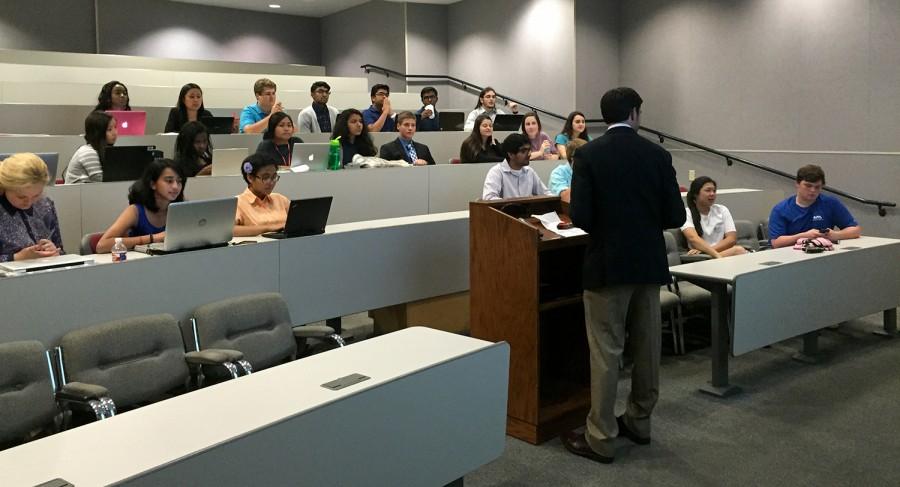

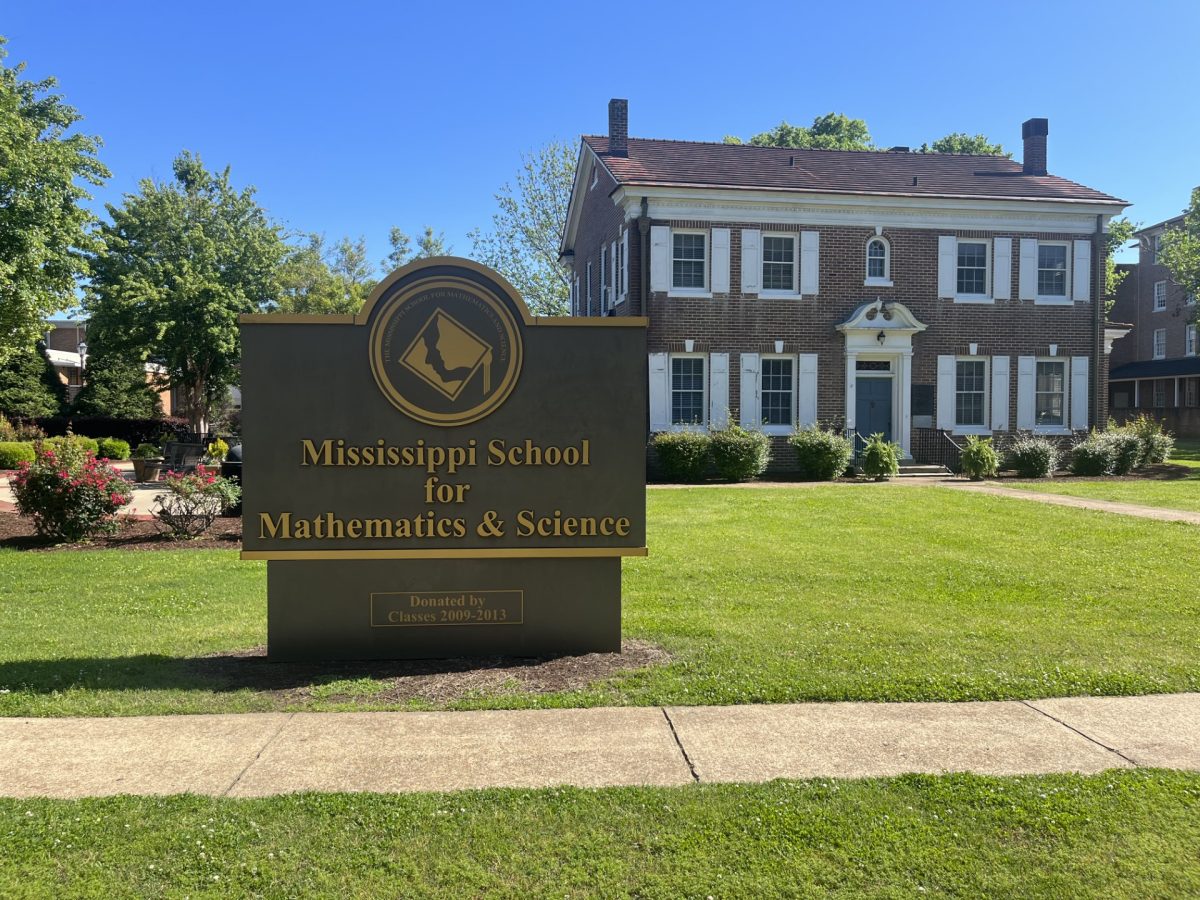

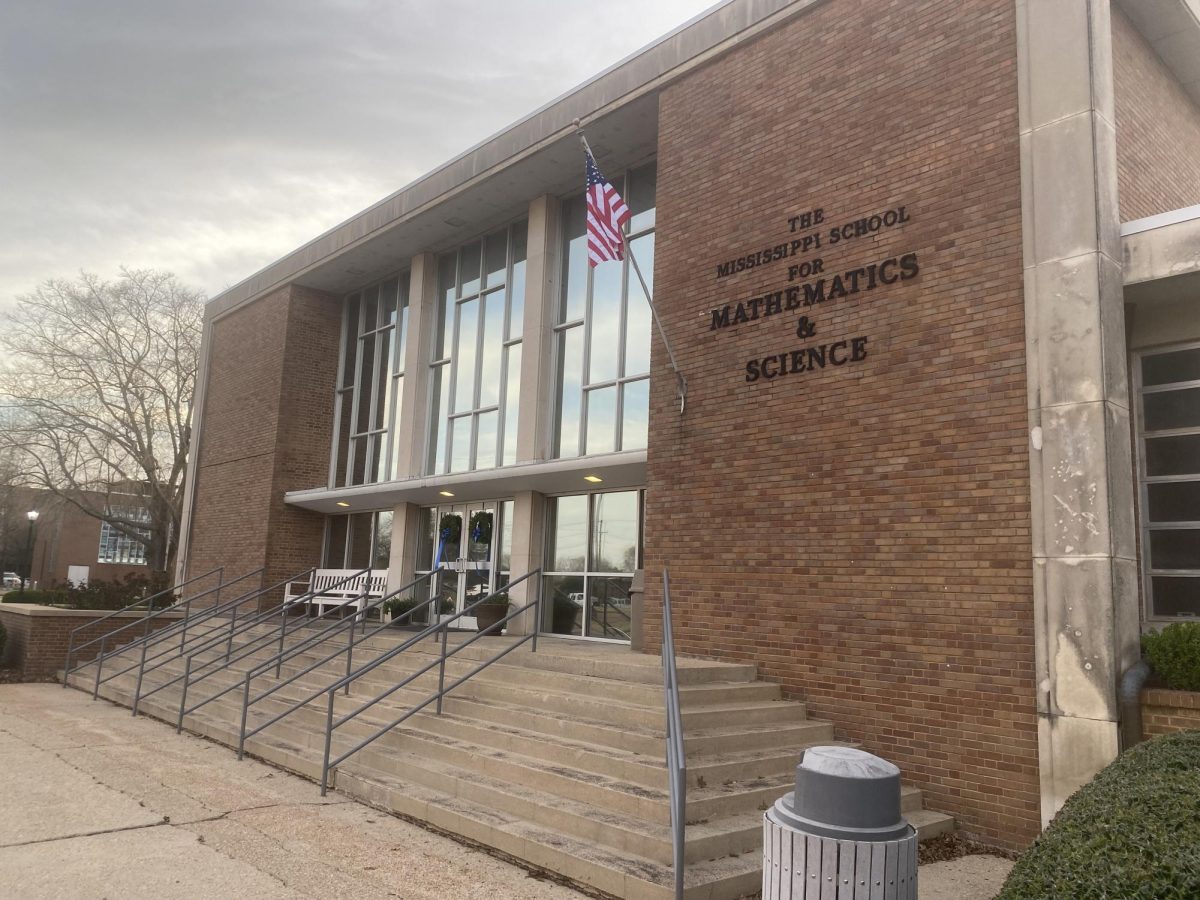


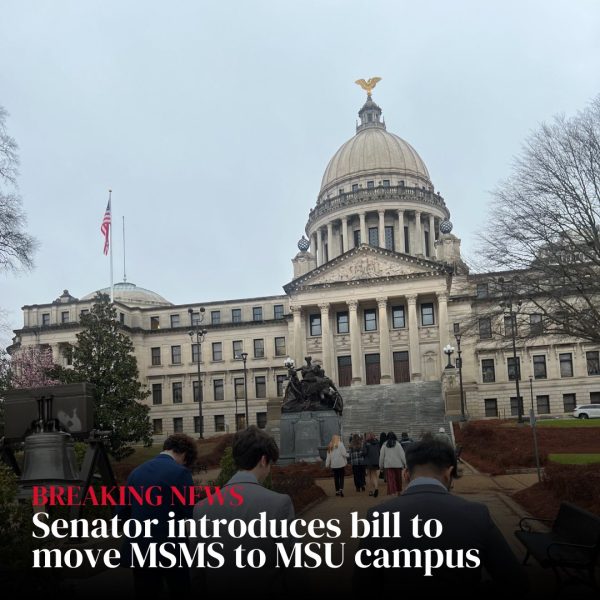


![MSMSs Student Government Association senators discuss topics relevant to the student body [Sept. 13] in Hooper Auditorium. SGA meets at 6 p.m. every Tuesday.](https://thevisionmsms.org/wp-content/uploads/2022/09/sgairis-475x356.jpg)




